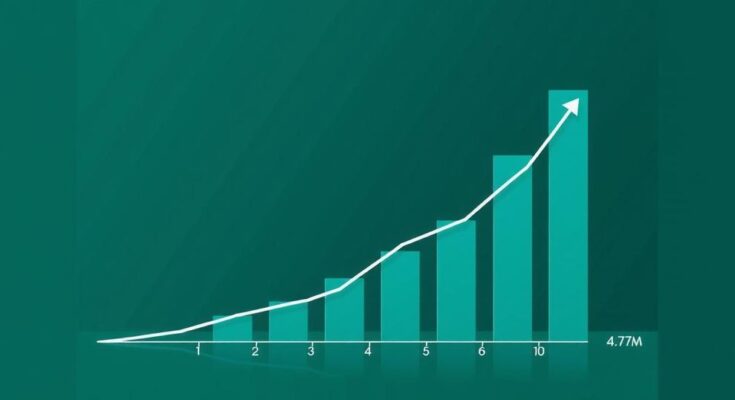Moody’s upgraded Nigeria’s credit rating from ‘Caa1’ to ‘B3’ due to significant improvements in external and fiscal positions. The country’s economy is experiencing its fastest growth in nearly a decade, although high inflation continues to pose challenges. Moody’s outlook for Nigeria is now stable, anticipating continued progress despite potential oil price fluctuations.
On Friday, Moody’s credit ratings agency made headlines by upgrading Nigeria’s credit rating from “Caa1” to “B3.” This change was attributed to notable enhancements in Nigeria’s external and fiscal positions. The upgrade marks a significant milestone for the country as it highlights encouraging economic progress and stability.
Just recently, the World Bank reported that Nigeria’s economy experienced its most robust growth in nearly ten years in 2024. This growth was primarily fueled by a productive fourth quarter and an increasingly stable fiscal environment. However, there is still a lingering concern with high inflation rates that could impact future growth.
In their statement, Moody’s specifically pointed to the recent overhaul of Nigeria’s foreign exchange management framework, stating it has “markedly improved the balance of payments” and significantly increased the Central Bank of Nigeria’s foreign reserves. This improvement is a crucial sign of economic stability, especially as the country faces various external challenges.
Additionally, Moody’s noted that the inflationary risks tied to various policy changes are diminishing. Signs suggest that both inflation and the cost of domestic borrowing are starting to ease, which could further boost confidence among investors and the overall market.
It is worth mentioning that Moody’s has adjusted Nigeria’s outlook from “positive” to “stable.” The agency does expect that while improvements in external and fiscal matters might slow down, they do not anticipate a complete reversal, particularly if there are declines in global oil prices. According to Moody’s, “The stable outlook reflects our expectations that external and fiscal improvements will decelerate but will not reverse entirely.” This indicates a cautious optimism for Nigeria’s economic future, despite the challenges that lie ahead.
In summary, Moody’s has upgraded Nigeria’s credit rating to “B3” due to improvements in its external and fiscal positions. The World Bank’s report on Nigeria’s recent economic growth supports this positive outlook, although inflation remains a concern. Moody’s latest assessment indicates a stable outlook for the country, with expectations that while progress may slow, significant advancements are likely to continue.
Original Source: www.tradingview.com




